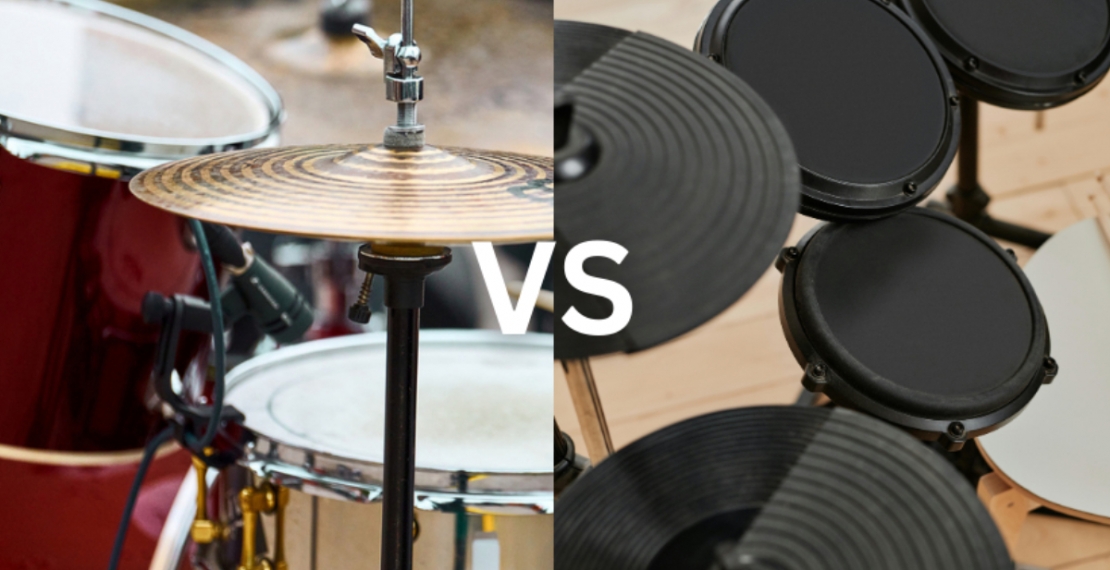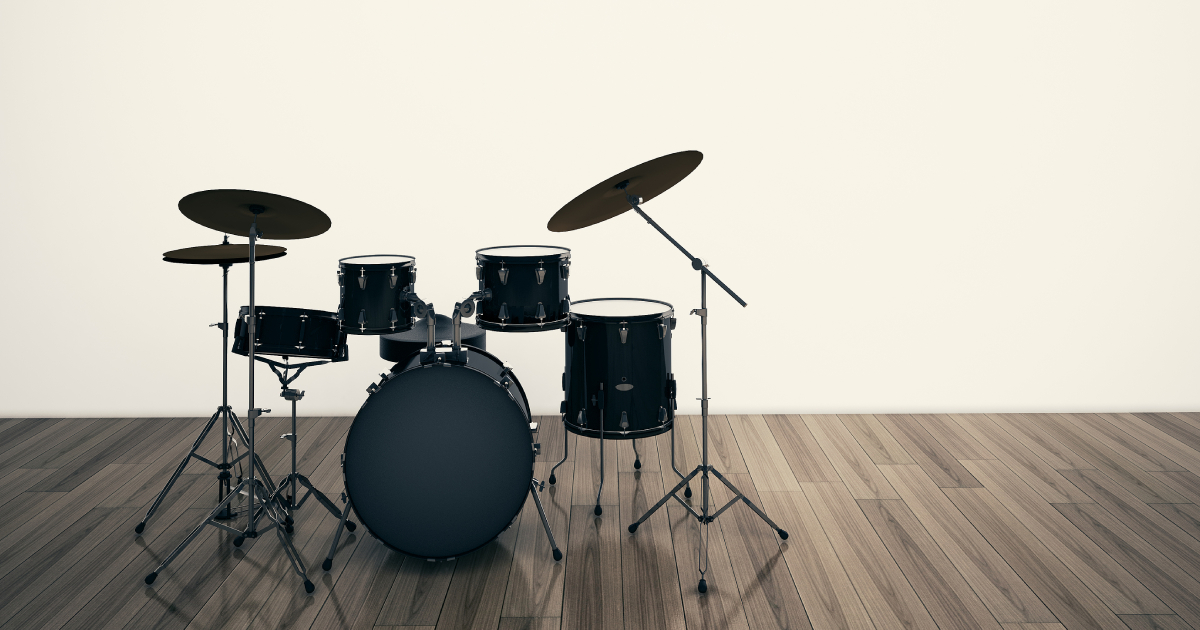groove music school blog: all about music, drum, singing, piano & guitar
Electronic Drums vs. Acoustic Drums: Which is Right for You?

Electronic Drums vs. Acoustic Drums: Which is Right for You?
Choosing between electronic drums and acoustic drums is a common dilemma for both beginner and experienced drummers. Each type of drum set offers unique advantages and disadvantages, making the decision largely dependent on your personal preferences, lifestyle, and musical goals. In this article, we'll explore the key differences between electronic and acoustic drums to help you determine which is the right choice for you.
Sound and Playability
One of the most significant differences between electronic and acoustic drums is the sound and playability. Acoustic drums produce sound naturally through the vibration of drumheads and cymbals, resulting in a rich, organic sound that many drummers prefer. The tactile feedback and dynamic range of acoustic drums make them ideal for expressive playing and live performances.
In contrast, electronic drums produce sound digitally through a drum module, which triggers pre-recorded samples or synthesised sounds. While modern electronic drum kits offer high-quality samples and realistic playability, they still lack the natural feel and resonance of acoustic drums. However, electronic drums allow for greater sound versatility, enabling you to switch between different drum kits and effects with the push of a button.
If you're interested in learning to play both types of drums, consider enrolling in drum lessons in Singapore. Experienced instructors can help you master both electronic and acoustic drums, ensuring you're well-rounded in your drumming skills.
Volume and Practice
Volume control is another crucial factor to consider when choosing between electronic and acoustic drums. Acoustic drums are inherently loud, making them challenging to practice in environments where noise is a concern. If you live in an apartment or need to practice without disturbing others, acoustic drums may not be the best option unless you invest in soundproofing or practice pads.
On the other hand, electronic drums offer a significant advantage in terms of volume control. With electronic drums, you can practice quietly by using headphones, making them ideal for drummers who need to keep the noise down. Additionally, electronic drums often come with built-in metronomes, recording capabilities, and practice tools that can aid in your drumming development.
Portability and Setup
When it comes to portability and setup, electronic drums have a clear advantage. Electronic drum kits are generally lighter and more compact than acoustic kits, making them easier to transport and set up. This is especially beneficial for drummers who need to move their kit frequently or have limited space for storage.
Acoustic drums, on the other hand, are bulkier and require more space for setup. The process of setting up and tuning acoustic drums can also be time-consuming, especially for beginners who are still learning the ropes. However, once set up, acoustic drums offer a more authentic drumming experience, with each drum and cymbal contributing to the overall sound.
Whether you choose electronic or acoustic drums, drum lessons for adults in Singapore can help you get comfortable with your chosen drum set and improve your setup and tuning skills.
Cost and Upgradability
Cost is another important consideration when choosing between electronic and acoustic drums. Entry-level acoustic drum sets are generally more affordable than electronic sets, with many quality options available under $800. However, as you progress in your drumming journey, you may find yourself wanting to upgrade individual components, such as cymbals, drumheads, or hardware.
Electronic drums, while often more expensive initially, offer more upgradability in terms of sounds and features. Many electronic drum modules allow you to download and customise new drum kits, giving you endless possibilities for sound experimentation. Additionally, electronic drums are less prone to wear and tear, reducing the need for frequent maintenance and replacement parts.
Conclusion
Deciding between electronic drums and acoustic drums ultimately comes down to your personal preferences, lifestyle, and musical goals. Acoustic drums offer a rich, natural sound and are ideal for live performances, while electronic drums provide versatility, volume control, and convenience for quiet practice.
To make the most informed decision, consider taking drum lessons at Groove Music School, where you can try out both types of drums and receive expert advice from our experienced instructors. If you're interested in beginner drum lessons, Groove Music School can help you choose the right drum set and guide you on your drumming journey. Contact us today to learn more about our classes and how we can help you achieve your drumming goals!





